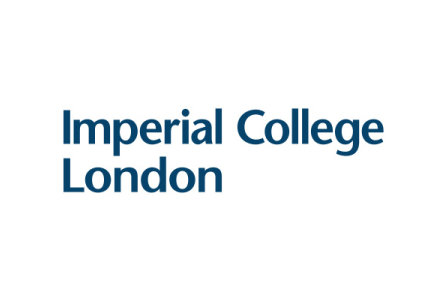Imperial College London: Spin-controlling materials team win prestigious Horizon Prize
An international team of scientists working on chiral materials have won the Royal Society of Chemistry’s Materials Chemistry Division Horizon Prize.
Imperial researchers are part of the Chiral Materials Team, a multi-institutional and multi-country collaboration of academics in the UK, the Netherlands, Israel, the USA, Spain, Germany and Italy. The team won the Materials Chemistry Division Horizon Prize for the discovery of chiral organic materials that allow high control of photon and electron spin.
Materials that control electron spin are currently used in computer memory and 3D displays. The team’s work suggests that chiral organic materials hold huge potential in next-generation versions of these technologies and many others including quantum computing, sensing, high-performance displays, and authentication products.
The Horizon Prizes celebrate the most exciting, contemporary chemical science at the cutting edge of research and innovation. These prizes are for teams or collaborations who are opening up new directions and possibilities in their field, through ground-breaking scientific developments.
The importance of spin
Current and future technologies rely on the precise control of a fundamental property of electrons and light called spin. Established strategies to achieve control of spin in these applications rely on expensive materials and approaches that have serious limitations.
The team have pioneered an alternative approach to control light waves and electron spin in organic materials through the development of new organic semiconductors that exhibit chirality: their structures exist as a pair of non-superimposable mirror images. Such chiral molecules can absorb and emit strong circularly polarised light or lead to electron spin control.
The materials and methods pioneered by the team showcase some of the strongest spin responses to date – going against what was previously thought possible and opening the door to breakthroughs in applications reliant on spin.
Essential collaboration
The multidisciplinary team receive a trophy, individual certificates and a professionally produced multimedia pack showcasing the prize-winning work and its importance.
There are so many extraordinary applications of chiral molecules, which can make existing technologies more environmentally friendly and open the door to technological innovations that don’t even exist yet.
Dr Jess Wade
Team leader Professor Matthew Fuchter, from the Department of Chemistry at Imperial, said: “Collaboration has been essential to help us understand many aspects of chirality science. This team has hugely benefitted by being part of a large pan-European PhD training network called HEL4CHIROLED. Such a network not only supports our research, but also seeds many new ideas and directions that will undoubtedly lead to new and exciting opportunities.”
Team member Dr Jess Wade, from the Department of Materials at Imperial, said: “I’ve been inspired to work with chiral molecules ever since seeing team leader Professor Matt Fuchter and the late-and-great Professor Alasdair Campbell talking about them at Imperial over five years ago.
“Since then, they have never ceased to amaze me. There are so many extraordinary applications of chiral molecules, which can make existing technologies more environmentally friendly and open the door to technological innovations that don’t even exist yet.”
Celebrating successes
Dr Helen Pain, Chief Executive of the Royal Society of Chemistry, said: “Some of the most incredible work in chemical science is carried out by teams and collaborations who use their diversity of thought, experience and skills to deliver astonishing results. These synergies are often at the very forefront of expanding our understanding of the world around us, and why our judges have such a difficult job selecting winners for our Horizon Prizes.
“Although we are in the midst of negotiating a particularly turbulent and challenging era, it is important to celebrate successes and advances in understanding as genuine opportunities to improve our lives. The work of the Chiral Materials Team is a fantastic example of why we celebrate great science, and we’re very proud to recognise their contribution today.”
The Chiral Materials Team
Collage of people’s faces
The Imperial members of the Chiral Materials Team are:
Matthew Fuchter, Professor of Chemistry
Jess Wade, Imperial College Research Fellow
Jochen Brandt, Royal Society University Research Fellow
Xingyuan Shi, Postdoctoral Researcher
Francesco Salerno, PhD student
Seán T. J. Ryan, Postdoctoral Researcher
Alasdair J. Campbell, Professor (deceased)

